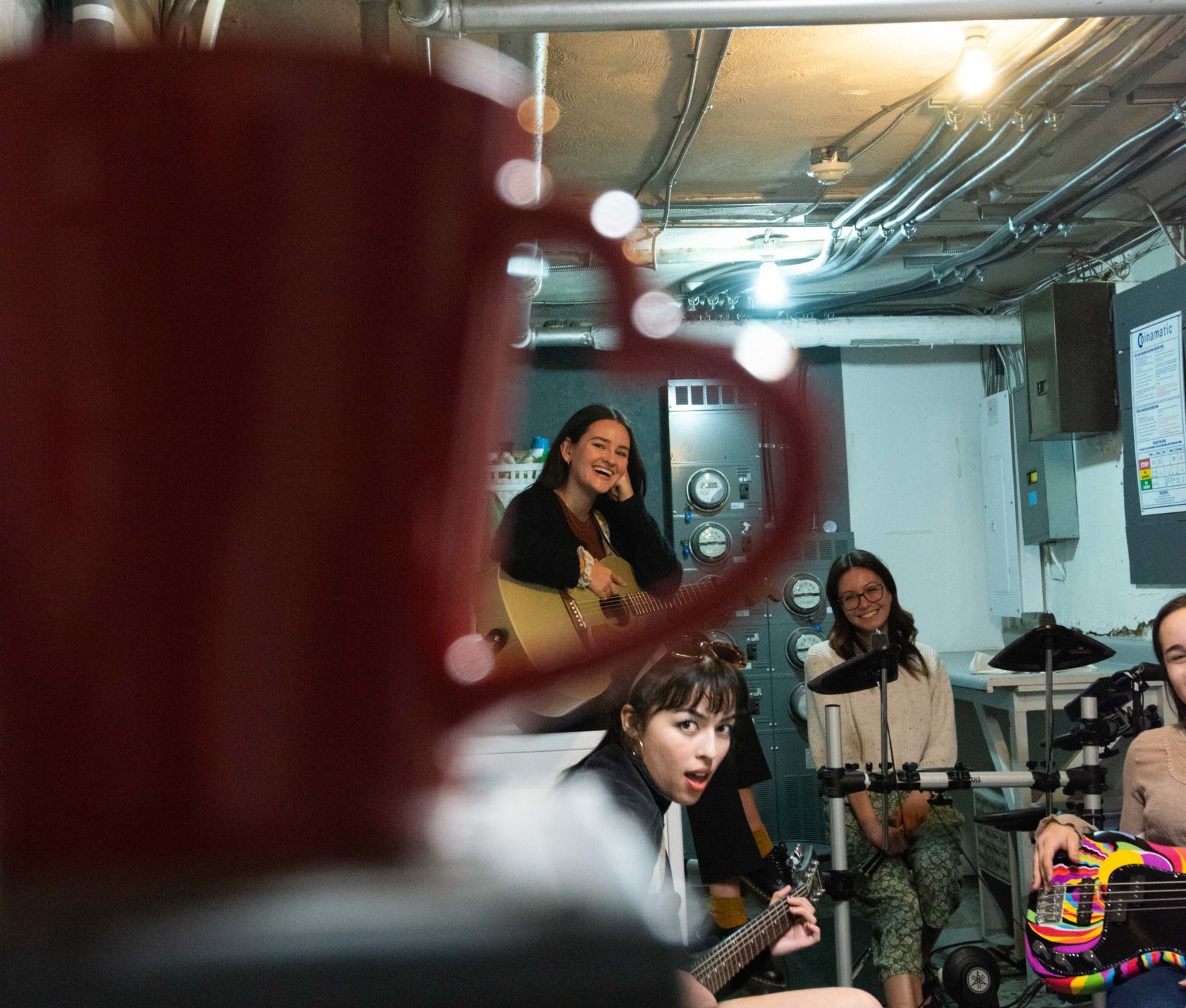by Harrison Samphir
“This is a note to my future self
Please don’t take my work in vain
The sacrifices made are provin’ that you’re worth your name”
Growing up in Zaria, Nigeria, Ismaila Alfa remembers the continental trade winds that blew through his city marking the beginning of the winter season. Known as the Harmattan, the reddish haze lifts up dust and sand from the Sahara desert and blows it through the air in a subtropical huff. For days it can limit visibility, ground flights and block the sun’s glow.
The Harmattan is at once foreboding and prophetic; it has the power to destroy crops and veer humidity, but it also presages the coming of an auspicious new season. It is fitting, then, that this meteorological phenomenon was chosen as the title of his group’s – Alfa – debut record.
“The wind signifies the change between the rainy and dry seasons in West Africa”, says Ismaila, speaking with Stylus on the eve of the album’s release party at the West End Cultural Centre. “We chose this name for the album because it represents the past two, three years for me in my life, between things that have been changing with family, work and getting this album together, so we figured it was a good name.”
Billed as political rap, Harmattan was designed from the outset to be a live band hip-hop record that, with first-class production and personnel, could maintain high fidelity without relying on samples. To achieve this, Alfa teamed with some of Winnipeg’s preeminent artists.
Michael Petkau Falk (Les Jupes) produced the entire disc – and co-wrote many of the songs – in the studios of his label Head in the Sand; virtuoso jazz drummer Curtis Nowosad arranged percussion; the Dirty Cat Fish Brass Band added horns; Julian Bradford (Moses Mayes) laid down bass; Andrina Turenne (Chic Gamine) and Joanna Majoko (Soul Station) contributed scintillating backing vocals; and Matt Peters (Royal Canoe) filled in as a “groove producer” on several tracks.
“I had always dreamt of making a hip-hop-based album with live musicians,” Ismaila tells Stylus. “I knew that, if I was going to do it, I needed people who were technically proficient and at the top of their game, but they also had to have an understanding of where I was coming from a rap perspective.
“Everyone understood we wanted to build the album with live instruments but we still wanted to keep a sort of sampled feel to it. So because [the other artists] are both technically proficient and understand hip hop it was really easy.”
Continuing in the lyrical tradition established by groups like Public Enemy and X-Clan during the “conscious hip hop” movement of the 1980s, Harmattan is a record not just about personal transformation, but the modern condition. It confronts topics as diverse as intercontinental war, the grinding cycle of life in the capitalist world, social justice and, of course, phoney rappers. By pulling no punches, these are songs and stories with much to tell and not a bit to hide. Call it dystopian rap for courageous and hopeful minds.
“There’s definitely a political tone to the album,” Ismaila confirms, “and it’s more from the everyday person’s perspective. I took the opportunity on a few of the songs to get my opinion out there… When it comes to dealing with racism in general, or the life of an immigrant moving to the Western world. I wanted to be a voice for the underdog.”
On “Tired,” the fiercest political statement on the album, a militant Ismaila raps “In a world based on constant change that stays the same/Where the rich keep the weaponry fixed to play the game/Quick to get their enemies nixed so they can gain/Shackled to the poverty line, I break the chain and run.”
Inspired by an experience as a student, the song is a manifesto of sorts.
“[It’s] one of the oldest tracks on the album I wrote when I was in school,” he says. “I was told to watch the news all day and write a few copy pieces for a mock program. But I found that after I spent the day listening to and watching the news, I was so depressed and upset about things that were happening, so I vented and wrote it all out in a rap song.
“I didn’t really feel like naming the song ‘Pissed Off’ so I called it ‘Tired.’ That’s how I felt at the end of the day. Drained from hearing all the terror happening around the world.”
There’s an undeniable connection between Harmattan and some of Ismaila’s earlier work with acclaimed local crew Frek Sho (Gruf tha Druid, Gumball, Micill Shazzam, Sunil Ishq and Gallivanting Spoof). The gutsy, uncompromising rhyme delivery remains firmly intact, but it’s decidedly more polished and self-aware. This musical progress, coupled with intelligent themes of personal growth and global change, shines through with the expert musicianship everywhere on the record.
With Harmattan, too, comes a welcome sign political hip-hop hasn’t disappeared since the days of the Poor Righteous Teachers and Boogie Down Productions. Facing every era and generation, after all, are profound struggles of conscience and identity that are difficult to articulate.
When an impassioned voice finds a way, we should all stand up and listen.
Listen to Harmattan in full on Soundcloud and visit Alfa’s Facebook page for more information.


